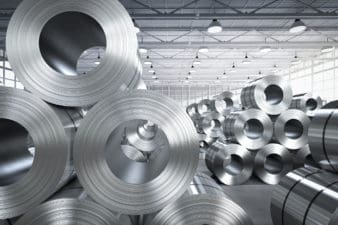A recent International Monetary Fund, or IMF, briefing noted that China is moving to a “new normal” characterized by slower yet more sustainable economic growth. This seismic economic shift is having a sharp impact on the prices of commodities with oil, coal, iron ore and base metals slumping sharply in recent months.
I expect this trend to continue as declining demand and excess supply feeds an ever-growing global supply glut. This has triggered a sharp sell-off of a number of commodities stocks such as Teck Resources Ltd. (TSX:TCK.B)(NYSE:TCK) as they battle to cut costs and maintain razor thin margins, so their operations remain sustainable.
Despite some analysts claiming that these stocks are attractively priced, there are signs that the carnage is far from over and commodities will continue to fall in price. As a result, investors are advised to ignore these stocks until China’s transition is complete and their stock prices have adjusted to reflect the new normal.
Now what?
In recent days it has become increasingly clear that China may be facing an economic crisis of sorts. Not only did 2014 GDP growth slow to 7.4%, its lowest level in over a decade, but it is projected to continue slowing. The IMF has forecast that China’s GDP growth could dip as low as 6% by 2018, and this certainly doesn’t bode well for the outlook of commodities. Neither does the sharp decline in activity in China’s real estate and manufacturing sectors, which are the single largest consumers of metallurgical coal, iron ore, copper and zinc in China. Real estate investment remains in terminal decline, falling for the 12th successive month in July 2015.
For the same period, manufacturing activity fell to its lowest level since February of this year. It is becoming increasingly clear after a tremendous economic boom, China’s rate of growth is now in decline, a situation that is creating considerable excess capacity. This, combined with falling utilization rates, is a key driver of China’s declining demand for commodities.
Then you have the tremendous stockpiles of commodities such as steel-making coal, iron ore, and steel that are also weighing heavily on commodities prices and it will be some time before they wind down. This certainly doesn’t bode well for Canadian miners like Teck Resources, First Quantum Minerals Ltd. (TSX:FM) or HudBay Minerals Inc. (TSX:HBM)(NYSE:HBM), with all three heavily reliant upon demand for copper and zinc.
Teck is also heavily exposed to the sharp collapse in price for steel-making coal, which, with prices moving below US$90 per tonne to be at their lowest level in a decade, will fall lower as Australian mines continue to boost output.
Mining heavyweight BHP Billiton Ltd. has made no secret of continuing to expand output at its coal mining operations as a means of maintaining margins by boosting efficiencies, which is worsening the coal supply glut.
Meanwhile, HudBay and First Quantum are also feeling the pinch from significantly softer precious metals prices, with precious metals such as gold generating 11% and 8% of their revenue, respectively.
So what?
Despite some market pundits asserting that miners such as Teck and First Quantum represent value after their recent sell-off, I don’t believe that the carnage has ended. There is a tremendous economic adjustment afoot in China, and I believe investors would do better to avoid exposure to commodities stocks until the outlook for China’s economy clears.





